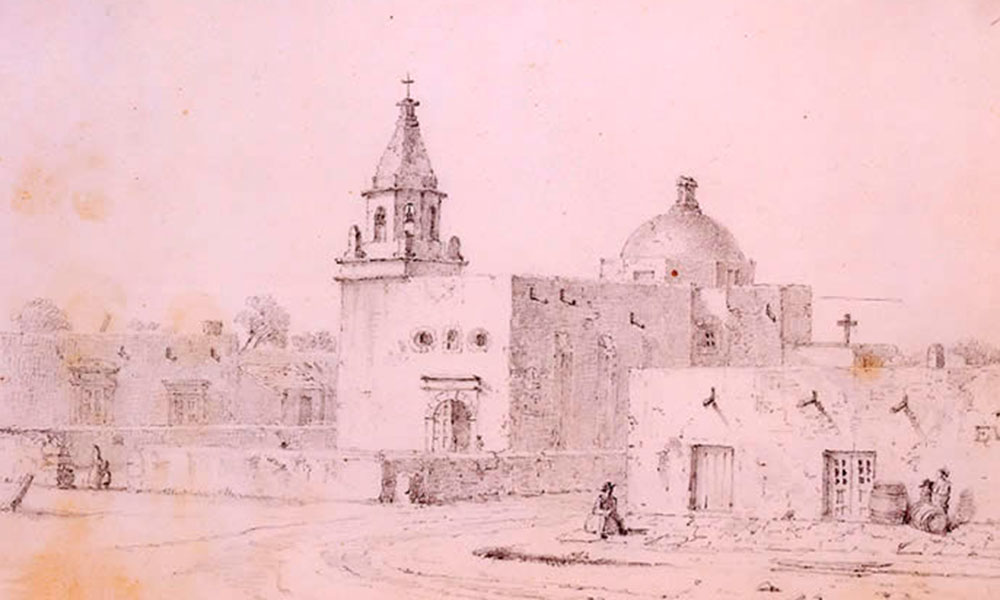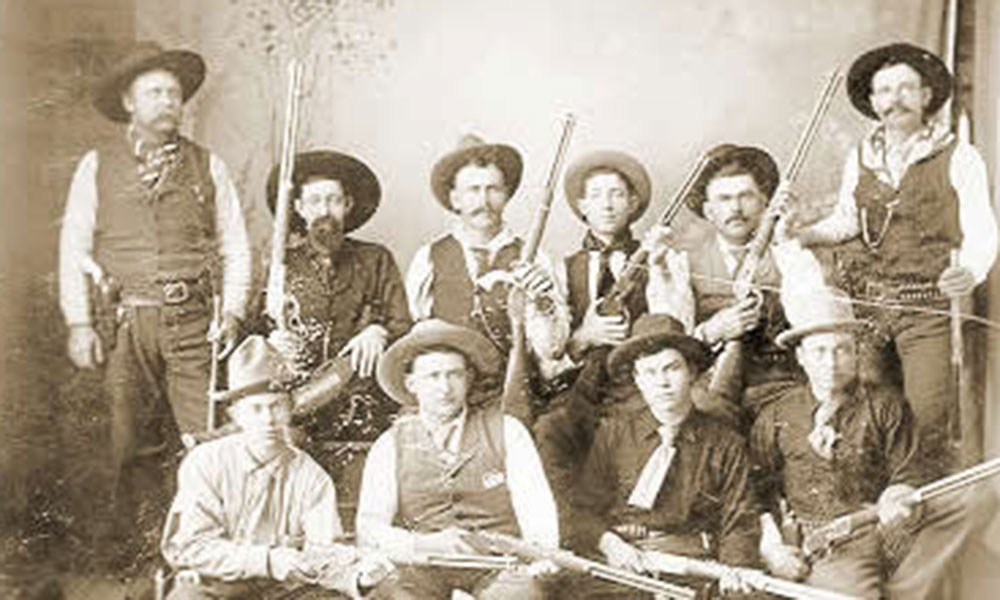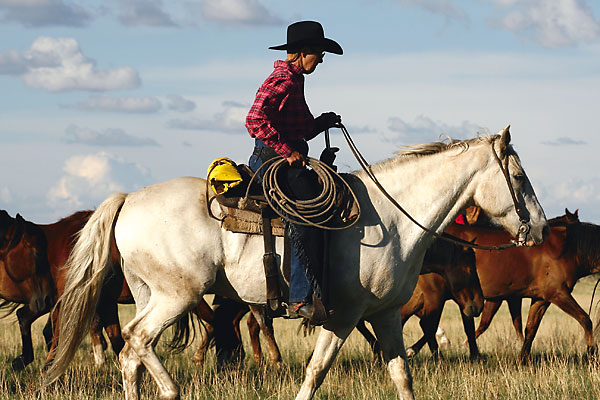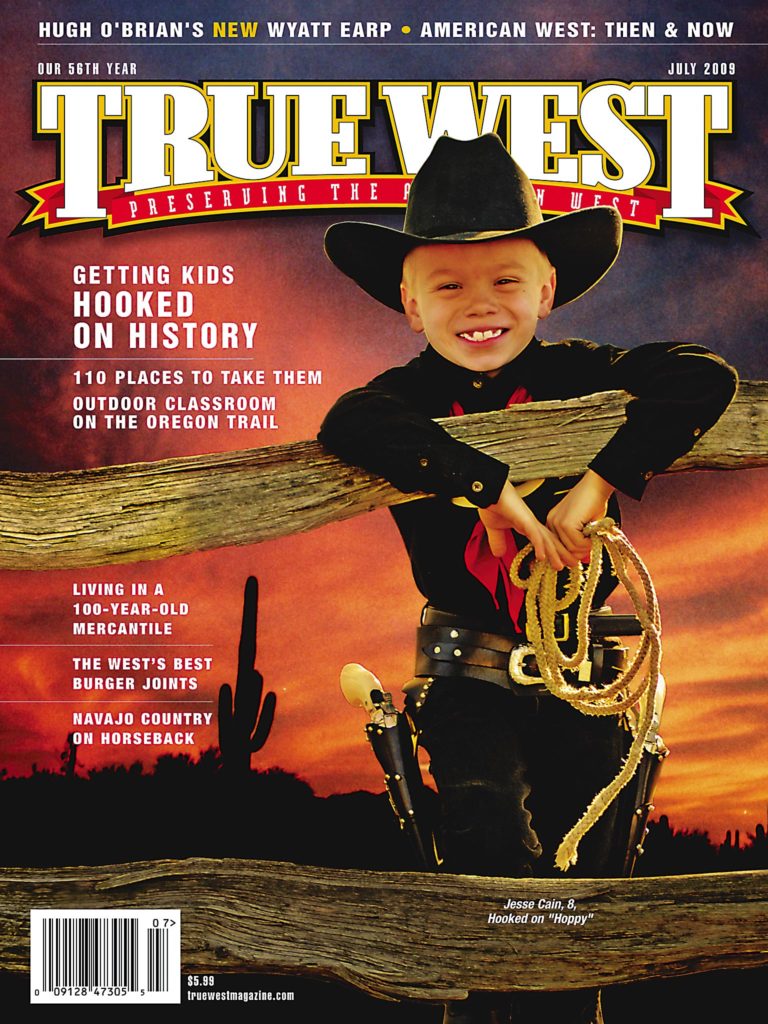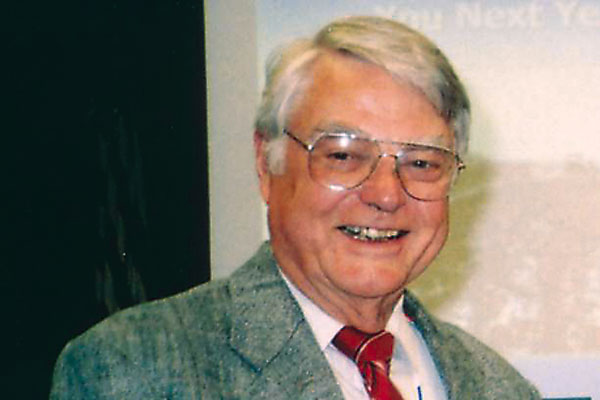
You can stand in some spots and feel “the power of the place.”
“It’s what you feel when you stand in the ruts left by thousands of covered wagons,” Gregory Franzwa once said. “You get out there, and if you don’t feel it, you’re either dead or don’t know history. If you do know history, there’s tremendous meaning in being able to stand in those ruts.”
Thanks to Gregory, more Americans can feel that power of place along the Oregon Trail, where a half-million emigrants crossed in prairie schooners on their way West in the mid-1800s. Since 1972 when he published The Oregon Trail Revisited, he was a major voice on preservation of this important piece of American history. He went on to create the Oregon-California Trails Association (OCTA) in 1982, which is dedicated to the interpretation and preservation of historic roads.
So it was only fitting that when 83-year-old Gregory died on March 29, 2009, his ashes were spread on the Oregon Trail.
Gregory learned he had pancreatic cancer a few months before his death, and he shared his prognosis with many friends around the world. One of them was Lesley Wischmann of Laramie, Wyoming, who worked with him at OCTA and then went on to cofound the Alliance for Historic Wyoming. She told True West she has warm and loving memories of her friend of 20 years.
“He was a great man and he lived a wonderful life,” she says. “I had a chance to write to him in the last months and I told him, ‘you have made such a difference in the world—not many people can say that. So many people feel an obligation to continue your work. Everything you did was magnified by thousands.’”
She knows many others sent similar messages. And she wasn’t surprised at what Gregory wrote back. “As would be expected, the last e-mail I got from him, about a month ago, encouraged me to keep up the fight to protect Wyoming’s precious long-distance trails,” she wrote to Trail supporters. “I trust he knew that he could count on me, the Alliance and all of you to do exactly that.”
Gregory Mathew Franzwa was born on February 27, 1926, in Carroll, Iowa. He was a Navy veteran of WWII, played jazz trumpet and owned a public relations firm. But he’ll be most remembered for the 21 books he wrote about trails and highways of early America, and his untiring efforts to save parts of the American West.
His first book on the Oregon Trail established his reputation as a top scholar of the covered wagon emigration to the American West. His latest book, published in 2007, was The Mormon Trail Revisited, which tracks the 1846-47 route of Mormon pioneers along 1,300 miles of trails. Gregory told Deseret News that the Mormon Trail exodus “has to be the biggest wagon train in history times 10,” with “2,500 humans and 500 wagons that left Nauvoo and camped at Sugar Creek.”
Several of his books print maps of trail sections, often utilized by families who are making “heritage tourism” the fastest growing type of travel in the country. Gregory said he wrote his books to get people “Right where the mules and oxen and wagon wheels left those scars. To get out of the car and stand in those ruts.”
He invited people to “listen to the sound of silence” and to feel a part of American history. Don’t be surprised, he warned, if you get “willies big-time,” feeling the emotions and struggles of those long-ago travelers.
He certainly lived the motto of OCTA: “The Oregon Trail is part of your heritage. Honor it, protect it, preserve it.”
But the wagon trails weren’t his only focus. In 1992, he founded the current Lincoln Highway Association to preserve the first transcontinental road for the automobile in the U.S., which ran across 12 states from New York City to San Francisco and was named in honor of slain President Abraham Lincoln. Gregory didn’t want people to forget the Lincoln Highway that first tied the East to the West. In 1996, he published the first of his state-by-state series of hardcover books on the Lincoln Highway. The six states west of the Mississippi are in print—California, Nevada, Utah, Wyoming, Nebraska and Iowa—while his book on Illinois was in process at his death. All his books are available through Patrice Press.
In announcing his death, Wischmann noted: “This is a huge loss for the community of Trail preservationists, but we can take some of the sting out of it by reminding ourselves that there is still much work to be done and that Gregory is counting on us to continue the work he started so many years ago.”
Gregory is survived by the woman he called his “soulmate,” Kathleen A. Colyer, who he married on December 23, 2000, after a storybook romance centered, appropriately, on the Oregon Trail. He also leaves two sons, a daughter, two brothers and his stepmother.
And he leaves behind many who shared his passion for American history and appreciated that his life’s work made him an Old West Savior.


